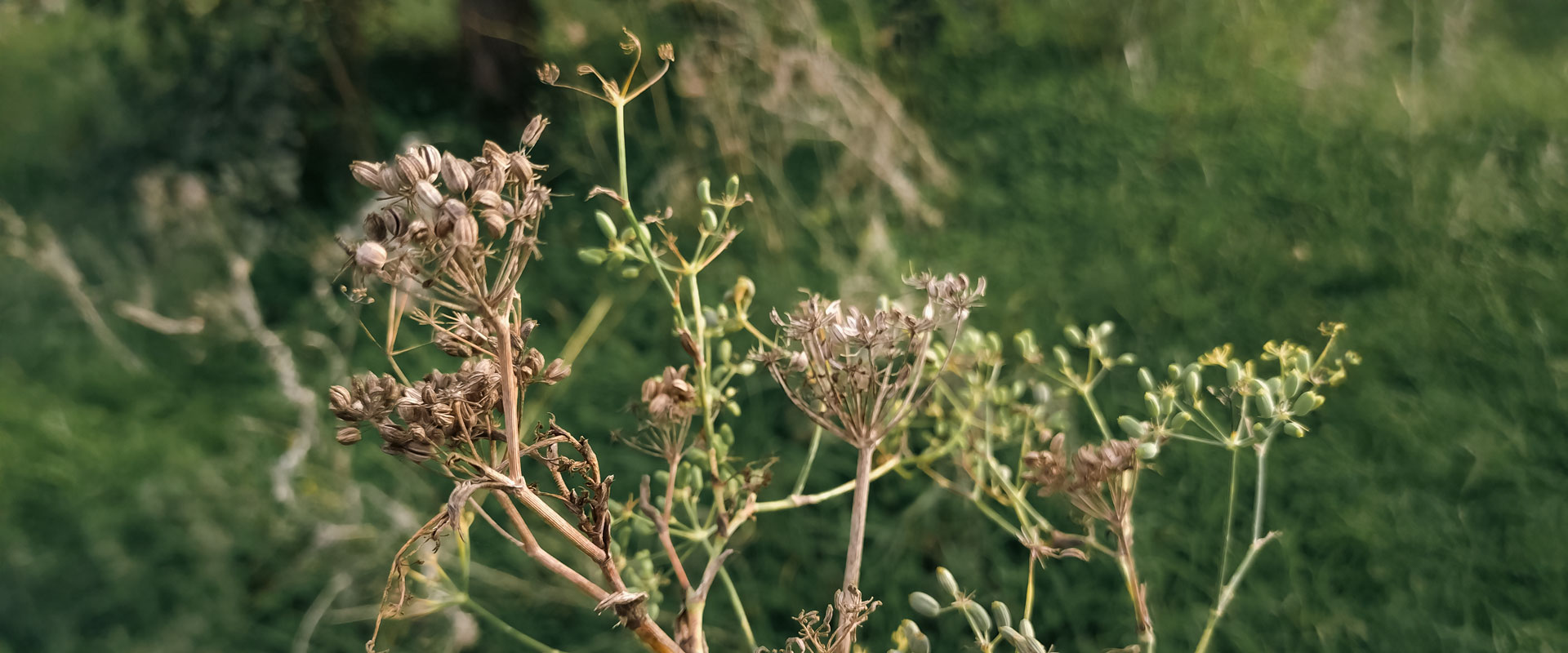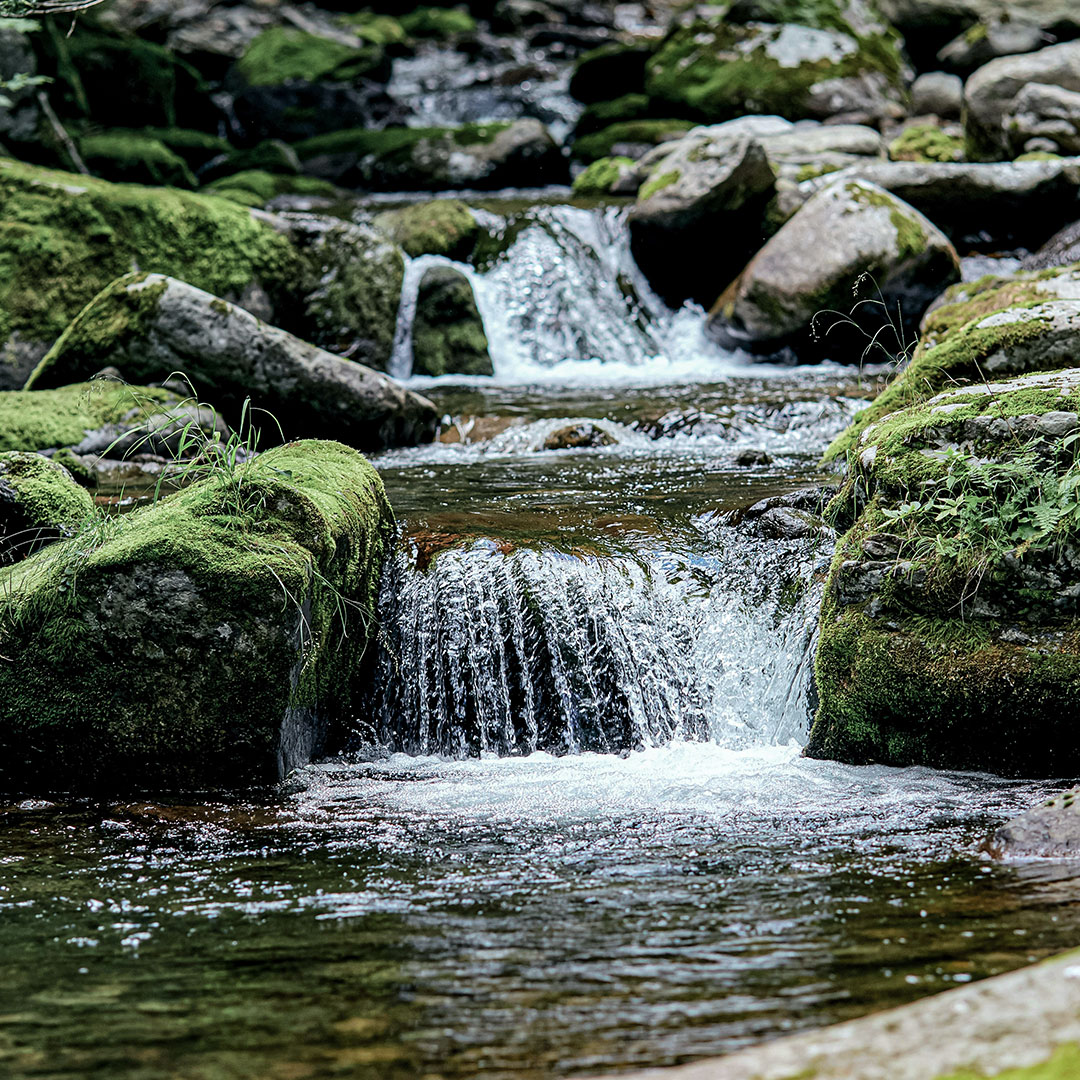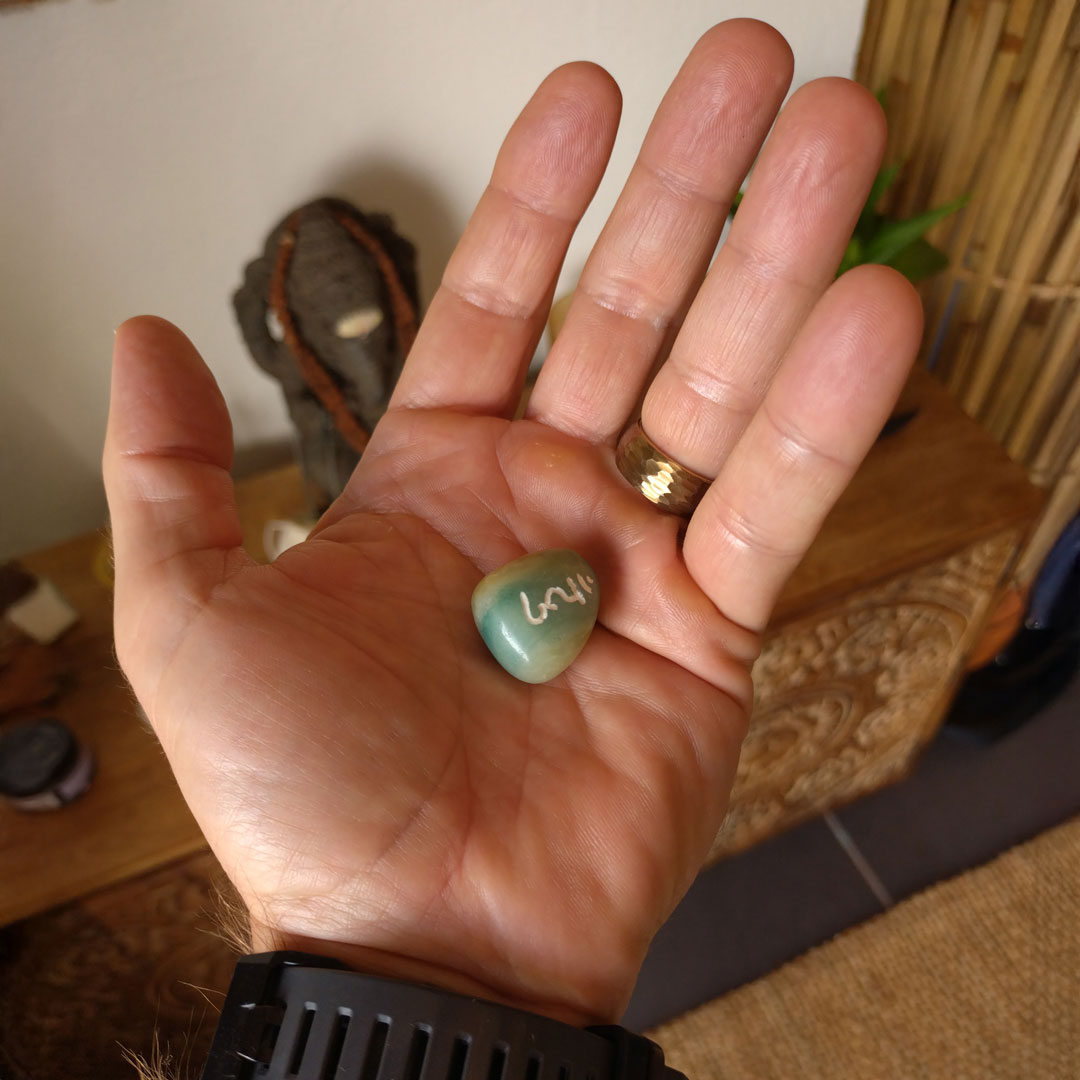Fennel Seeds: Mediterranean Herbal Power
Right now, all across the Mediterranean – from the rocky hills of Mallorca to the coastal fields – fennel stands tall and sun-dried, its blossoms faded, its seeds ready to be gathered. Few people realize the healing benefits of fennel seeds, which have been treasured for centuries in herbal medicine. Yesterday, my wife and I wandered up into the hills and collected some of these seeds ourselves, and once again we were struck by the incredible, sweet aroma that seems to carry the essence of the Mediterranean sun.
Out in nature, we often pass its wild counterpart without a second glance, unaware that these tiny seeds hold layers of healing, aroma, and history. So let’s slow down for a moment and look a little closer — at what might just be one of the most underestimated plants around us.
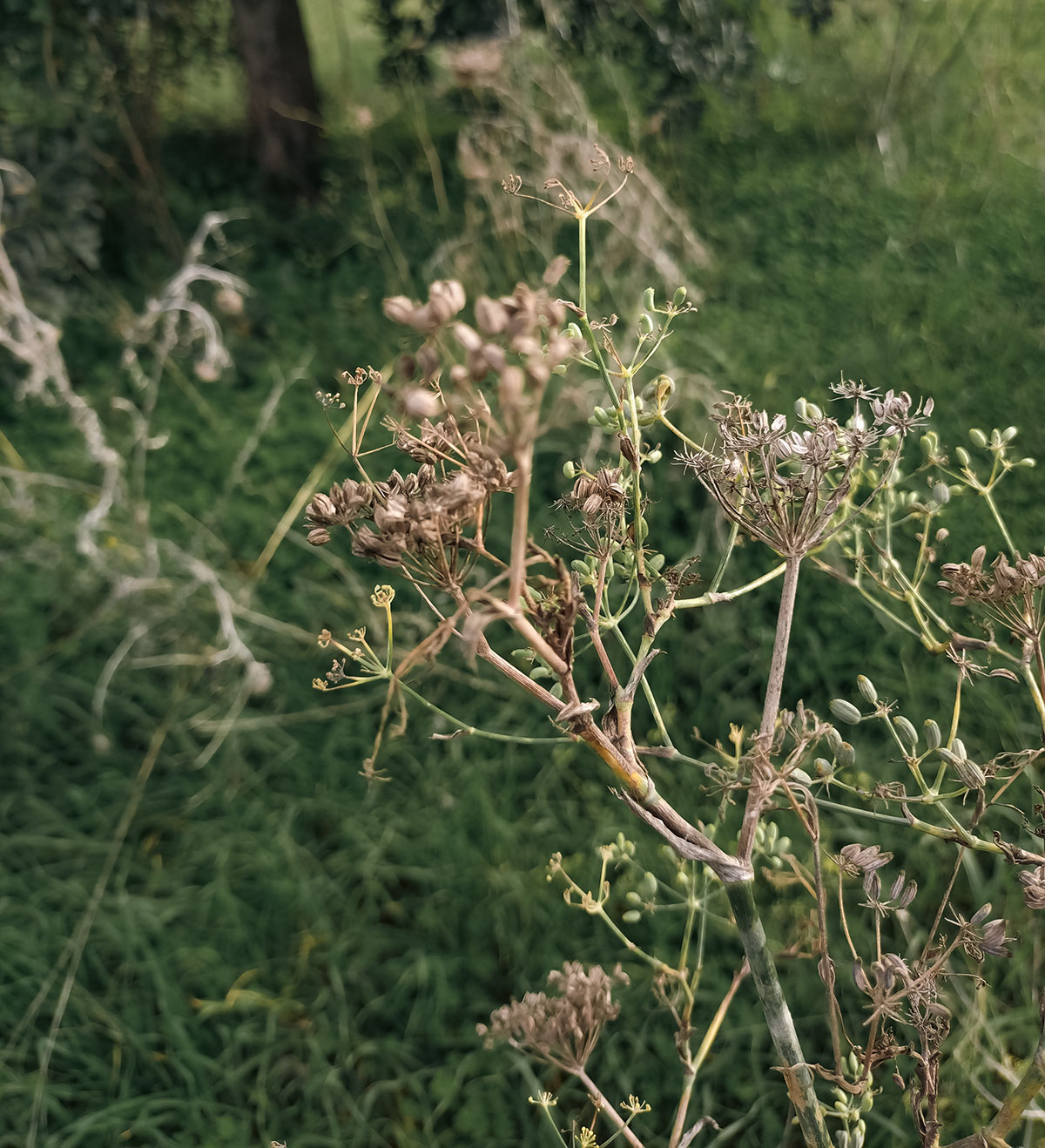
The healing language of fennel
Fennel seeds have been trusted for centuries in herbal medicine. They’re gentle yet powerful allies for digestion, helping to ease bloating, gas, and heartburn while relaxing the muscles of the gut. When steeped in hot water, they become a soothing tea that calms both the stomach and the mind.
In Ayurveda and traditional Chinese medicine (TCM), fennel is seen as harmonizing — balancing heat and cold, tension and flow. It’s also known for its expectorant and antispasmodic qualities, which make it a go-to remedy for coughs, cramps, and even menstrual discomfort.
Inside each seed lies a blend of essential oils — especially anethole and fenchone — responsible for its sweet, anise-like aroma and its therapeutic power. These oils are what make fennel not only a healer, but also a sensory experience.
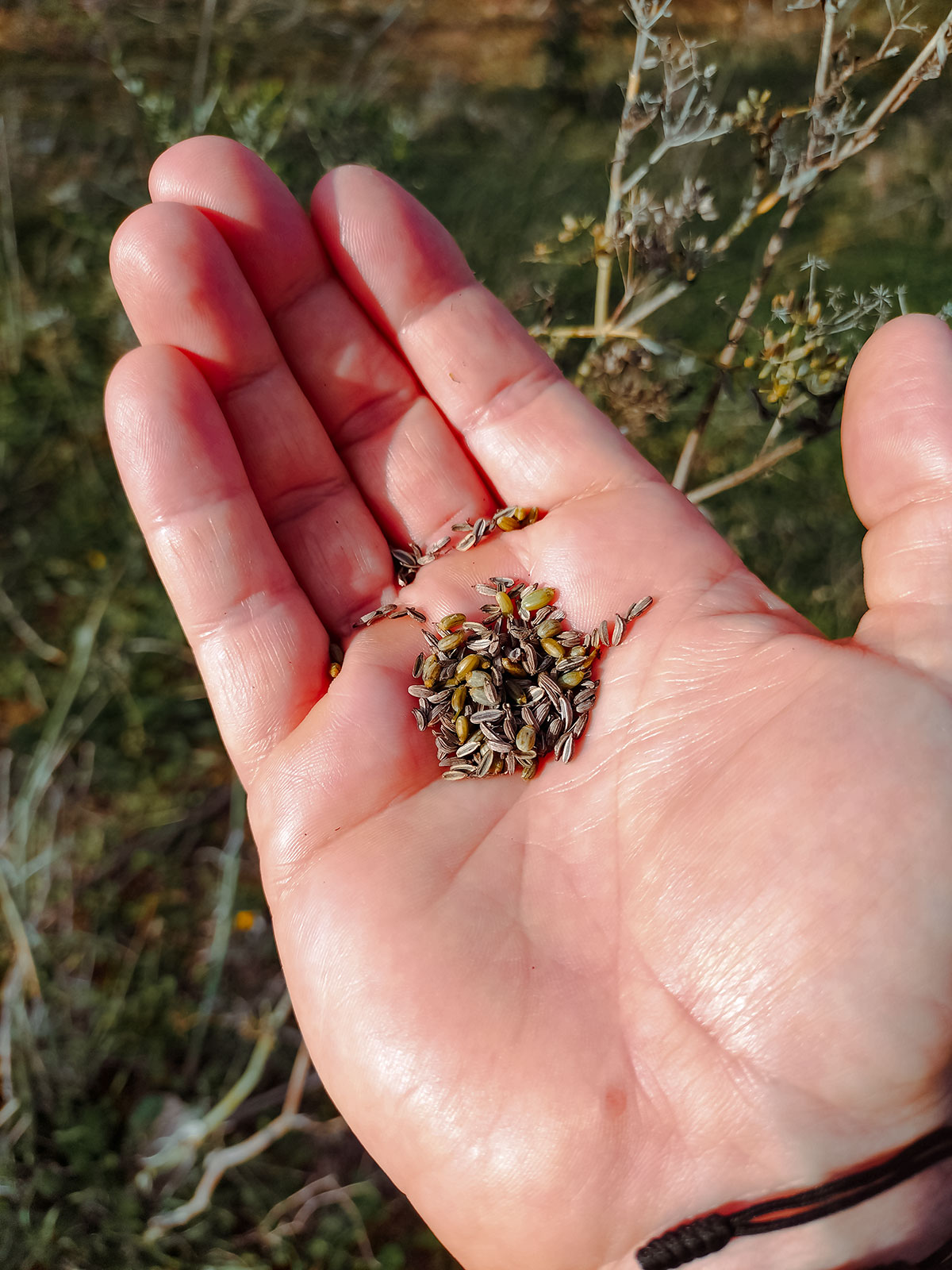
A spice with soul
Beyond the apothecary, fennel seeds bring their warmth to the kitchen. They’ve traveled through Indian curries, Chinese spice blends, and Mediterranean breads. A quick toast in a pan releases their sweet, slightly earthy fragrance — a scent that instantly brings comfort and curiosity.
Their flavor is bold, so a pinch is often enough to lift sauces, stews, or even a loaf of bread. And of course, fennel seed tea is a timeless ritual — especially when made from seeds you’ve gathered yourself, still sun-scented from the wild.
Brewing Healing Fennel Seed Tea
To make a simple but healing tea, lightly crush a teaspoon of seeds in a mortar, pour over boiling water, and let it steep for 7–10 minutes. If you like, add a touch of organic honey. Simple. Honest. Healing.
Fennel Seeds in Rituals and Aromatherapy
Fennel seeds also have their place in the world of scent and ceremony. When burned as incense, they release a fresh, sweetly spiced smoke — protective, comforting, and grounding. In folk traditions, they’ve long been used to clear negativity and invite calmness into the space.
You can place the seeds directly on charcoal for a quick, vibrant burn, or on a bed of sand for a slower, crackling release that feels like a small fire ritual. If you want the aroma to linger longer, gently crush the seeds before burning — their oils will awaken and carry their magic deeper into the air.
Tiny seeds, timeless wisdom
From kitchen to altar, from medicine to scent — fennel connects the physical with the subtle. It’s a reminder that healing doesn’t always come from something rare or exotic. Sometimes, it grows right beside the road, humble and unassuming, waiting for us to notice.
Maybe that’s the real lesson of fennel: awareness itself can be medicine.

